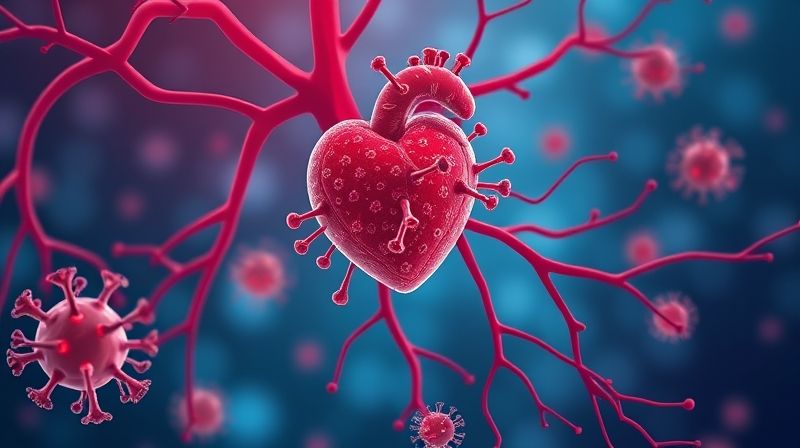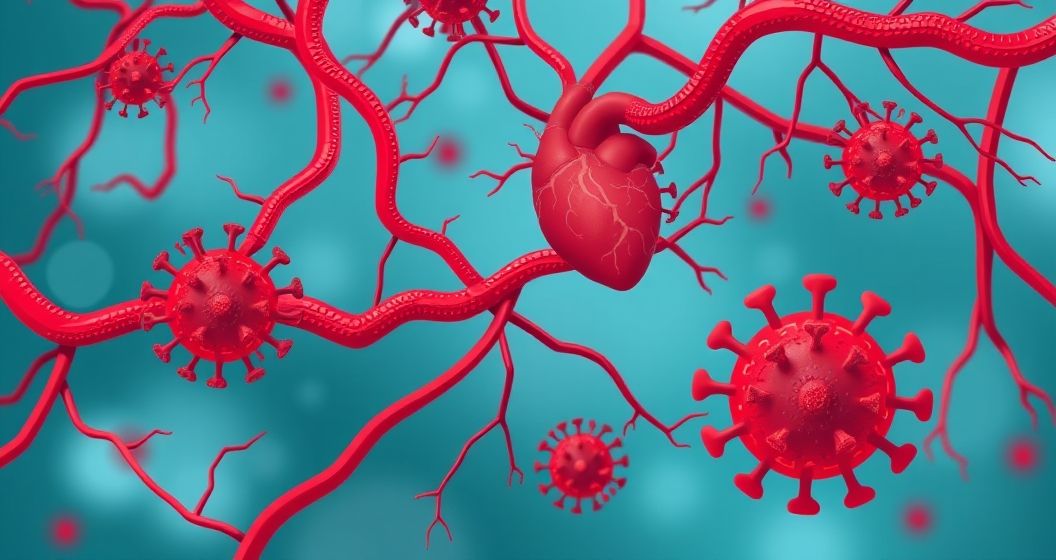COVID-19 and heart health: The CARTESIAN Study: Unveiling the Hidden Cardiovascular Damage

COVID-19 and heart health – Article illustration 1
The CARTESIAN study, a large-scale multinational investigation published in the European Heart Journal, provides compelling evidence of this link. Tracking nearly 2,400 participants across 18 countries, the study revealed a disturbing trend: COVID-19 survivors exhibited significantly stiffer arteries compared to their non-infected counterparts. This arterial stiffening, a hallmark of vascular aging, is a crucial indicator of increased risk for heart disease, stroke, and other cardiovascular complications. The study suggests that a single COVID-19 infection could age arteries by 5 to 10 years, a startling revelation with significant long-term health implications.
Understanding Arterial Stiffening and its Implications

COVID-19 and heart health – Article illustration 2
Arterial stiffness, or increased arterial rigidity, impairs the efficient flow of blood throughout the body. This reduced flexibility increases blood pressure, strains the heart, and contributes to the development of atherosclerosis (plaque buildup in arteries). Over time, this process can lead to serious cardiovascular events, including heart attacks and strokes. The accelerated arterial aging observed in COVID-19 survivors highlights a critical concern, even for those who experienced only mild or asymptomatic infections.
Long-Term Cardiovascular Risks After COVID-19 Infection
The implications of COVID-19’s impact on heart health are far-reaching and demand attention. The CARTESIAN study’s findings underscore the need for ongoing monitoring and proactive management of cardiovascular risk factors among COVID-19 survivors. Even individuals who initially experienced mild symptoms may be at increased risk of developing serious cardiovascular problems in the years following infection.
Protecting Your Cardiovascular Health Post-COVID-19
While the long-term effects of COVID-19 on the cardiovascular system are still being investigated, several strategies can help mitigate risks. Maintaining a healthy lifestyle is paramount, including: * **Regular Exercise:** Engaging in regular physical activity strengthens the heart and improves cardiovascular health. * **Balanced Diet:** A diet rich in fruits, vegetables, and whole grains, low in saturated and trans fats, supports healthy blood pressure and cholesterol levels. * **Stress Management:** Chronic stress can negatively impact cardiovascular health. Practicing stress-reduction techniques, such as yoga or meditation, is beneficial. * **Blood Pressure Monitoring:** Regular blood pressure checks are crucial, particularly for COVID-19 survivors. * **Consultation with Healthcare Professionals:** Regular checkups with your physician are essential for monitoring cardiovascular health and addressing any concerns. The findings from the CARTESIAN study serve as a stark reminder of the insidious and long-lasting effects of COVID-19. Understanding the potential impact on heart health and adopting proactive lifestyle changes are crucial steps in safeguarding long-term cardiovascular well-being. Continued research is necessary to fully elucidate the mechanisms underlying this relationship and develop targeted interventions. The quiet impact of COVID-19 on the heart demands our attention and proactive response.


